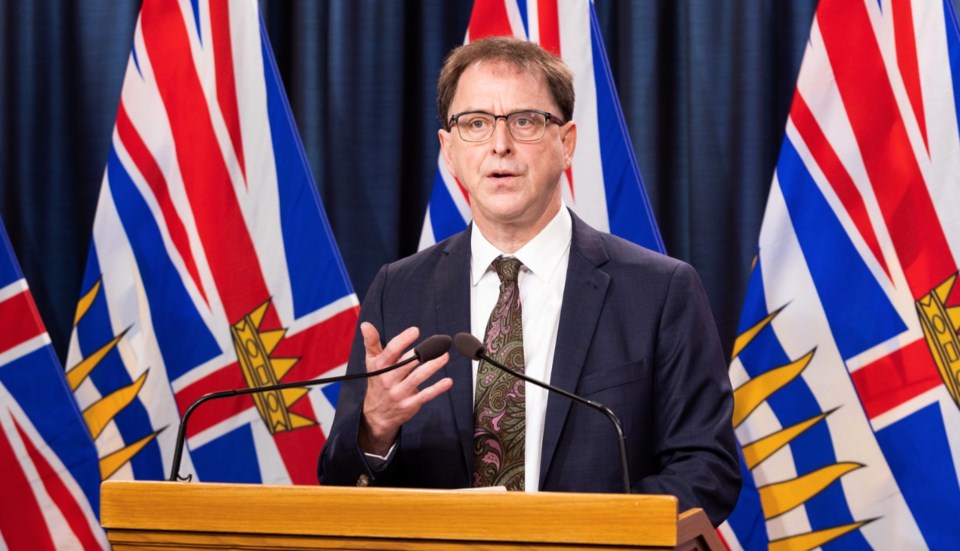Health Minister Adrian Dix’s new plan to fix the family doctor system is as expensive as it is ambitious.
It promises a new pay model for physicians, a new waitlist registry for patients and enhanced coordination between the many branches of the unwieldy public health-care system – all at a cost of at least $708 million over the next three years.
But what’s not in the new deal with Doctors of BC is just as interesting: A promise that those without a family doctor will actually get one.
Dix stopped short of making that pledge in announcing his long-awaited plan Monday, noting that successive health ministers in previous governments had utterly failed to meet similar promises.
But how are British Columbians left to judge whether the ambitious plan is working, if not for an increase in actual doctors taking on actual patients?
“So if you're asking, this agreement, does this mean X number of new patients will be attached to a family doctor? You can't say that and guarantee that for sure because we will have to see how it happens in practice,” said Dix.
“But we know for a fact that it will make things much better both for patients and for doctors and it's going to have a positive effect.”
The government’s hope is that the new pay model, which starts in February, will encourage freshly graduating doctors to choose family medicine, lure back some physicians who chose to work in hospitals and convince other practitioners who were thinking of closing their clinics to instead keep them open.
B.C. will boost doctor compensation from an average of $250,000 annually, under the current fee-for-service model, to as high as $385,000 in a new hybrid system that better accounts for time spent, number of visits, patient attachment rate and complexity of patients.
As much as $85,000 of that is meant to better fund the overhead costs doctors say make it unprofitable to run their clinics, including leasing space, paying employees, purchasing equipment and running computer systems. There’s also a provincial plan to coordinate locums to fill in for sick or vacationing doctors.
The new model will dovetail with previously announced signing bonuses for new family physicians, additional training seats, a planned new medical school and a push to speed up international accreditation opportunities for doctors trained overseas.
Doctors of BC endorsed the deal Monday, saying it was designed with input from actual physicians and will make a meaningful step towards improving the system.
Even the Opposition said it was a step in the right direction, albeit a somewhat vague one.
“What's missing is timelines, benchmarks, measurements, those kinds of things,” said Liberal health critic Shirley Bond.
“We won't know that we're successful unless we actually have the data to do the measuring that’s so important.”
Politically, the launch of the new deal with doctors went about as well as could have been hoped for the NDP government. Dix has bought incoming premier David Eby some time on the health-care file, and reduced the temperature of what has been a full-blown political crisis the past few months.
“I’m excited about this new agreement with Doctors of BC – it will deliver more and better care for patients, and help British Columbians get the medical help they need,” Eby said in a statement, after posting a social media video praising the deal alongside his wife Cailey, who is also a family doctor.
“The most exciting part of this agreement is that doctors and government wrote it together.”
A happy Eby may mean Dix gets to keep the health portfolio he has owned for the last five years.
Still, it’s unclear whether the one million British Columbians currently without a family doctor will buy into this deal.
For them, the real test will be in mid-2023 when the government unveils a new “provincial rostering system,” which Dix said will match people without a family doctor to physicians who can still accept patients. By then, all of the talk of complex medical pay models must translate into one tangible thing: More family doctors accepting more patients.
Whether B.C. gets there, or falls short, will undoubtedly become a defining issue in the next provincial election.
“We would expect a very significant number of doctors to take on this new program,” said Dix.
For Dix, Eby and the NDP’s sake, they better hope so.
Rob Shaw has spent more than 14 years covering B.C. politics, now reporting for CHEK News and writing for Glacier Media. He is the co-author of the national bestselling book A Matter of Confidence, and a regular guest on CBC Radio.




